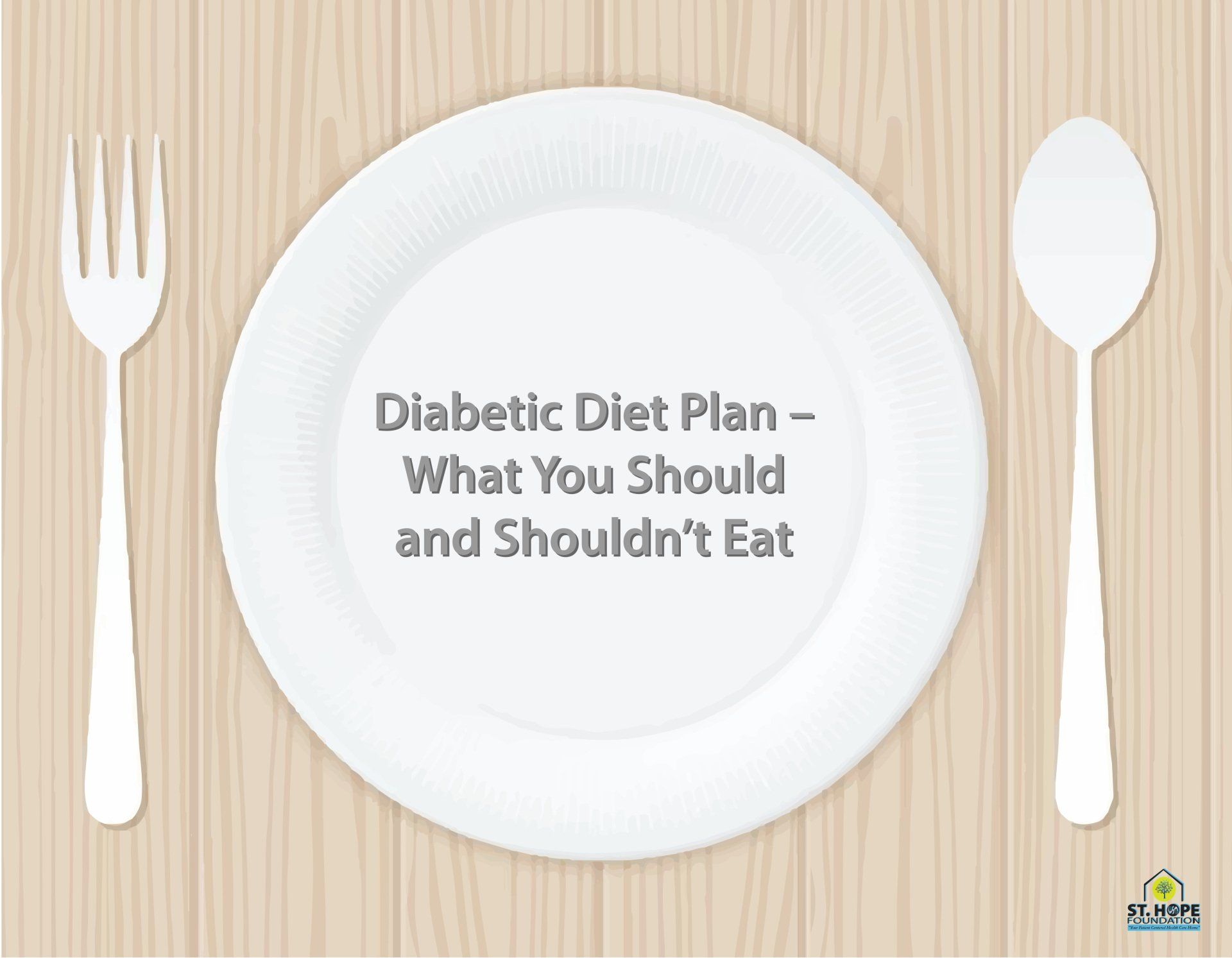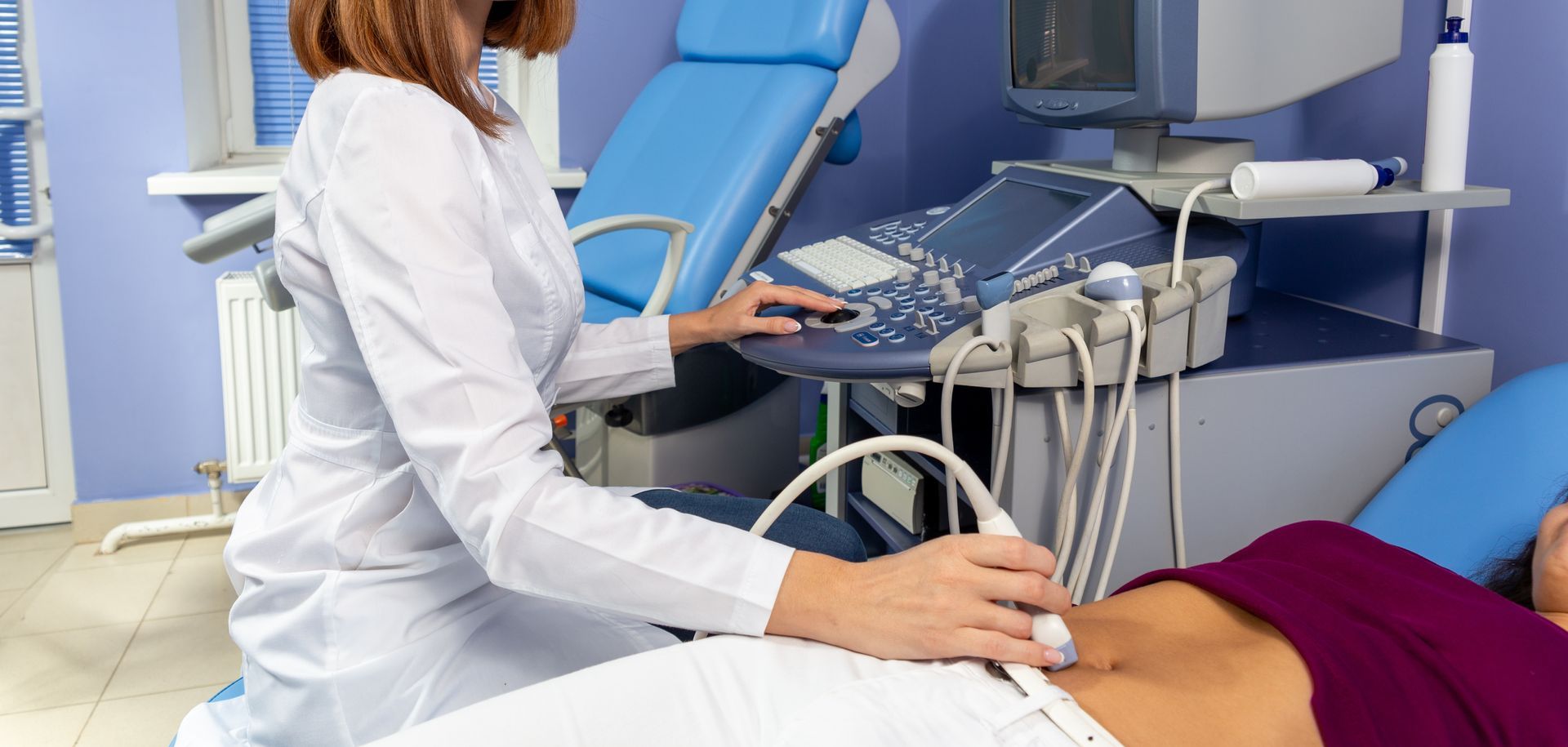Recent Posts
Diabetic Diet Plan – What You Should and Shouldn’t Eat

Your main goal with any diabetic diet plan should be to properly regulate blood sugar levels. You should talk with your doctor about what a good blood sugar target range should be for you and then develop meal plans that help you maintain those levels.
Broad Guidelines That Are Applicable to Almost Any Diabetic Diet Plan
- Eat lots of non-starchy vegetables like spinach, green beans and broccoli
- Minimize refined grains and sugars like white bread, rice and pasta
- Whenever possible opt for whole foods instead of processed foods
Carbs, in all their forms, raise blood sugar levels. That doesn’t mean people with diabetes can’t have any carbs, but the types of carbs you eat and what type of meal they’re eaten with will have a profound impact on the speed with which carbs impact your blood sugar.
Fruit juice will increase your blood sugar far more quickly than eating a piece of fruit.
Consuming fiber, fat or protein with your carbs will slow down the increase in your blood sugar.
When you talk to your doctor about your diet, they’ll likely recommend sticking to a plan that works for you. That often means finding ways to consume three balanced meals each day that properly regulate your blood sugar.
The Plate Method and Carb Counting
Both carb counting and the plate method are effective ways to track your daily food intake. Carb counting is maybe a little tougher because you need to count and track your carb intake at each meal and avoid exceeding those self-imposed limits. A dietician or your doctor may be able to help you develop a system for accurately tracking carbs.
The plate method can help you avoid overeating my limiting your per-meal intake to a single 9-inch plate that’s half non-starchy vegetables, one quarter lean protein and one quarter carbs.
Best Foods for Diabetes
Leafy greens are always a safe bet for meals, especially spinach and kale. Leafy greens are low in digestible carbs which means they’ll have little effect on your blood sugar. They’re also great sources of vitamins and minerals.
Fatty fish are another great option for diabetics. Salmon, mackerel, anchovies, sardines and herring are high in heart-healthy omega-3 fatty acids. These fatty acids are great for heart health and are renowned for reducing coronary risks.
Eggs are another excellent food that not only have inflammation-reducing properties but also help manage insulin sensitivity and bad cholesterol. How eggs are prepared does matter. Stick to poaching, boiling, frying with heart-healthy oils (olive oil, canola) or scrambling with low-fat milk rather than eating eggs with cheese or bacon.
Legumes and beans are great sources of B vitamins, calcium, potassium, magnesium and fiber.
Nuts are also a great addition to a diabetes diet since many people enjoy nuts as a snack.
When eaten in moderation they are a great low-carb source of fiber.
Good Healthy Snack Food Options for Diabetics
Snacking is a hard habit to break. For many diabetics, it’s easier to adjust meals to allow for some healthy snacking throughout the day. Managing snacks is doable as long as you carefully track what you eat and when.
Some good healthy snack options include:
Veggies and Hummus – Fibrous vegetables and humus are both great, relatively low-calory sources for vitamins, minerals, fiber and protein. Some healthy vegetables for dipping include carrots, bell peppers, cauliflower and broccoli.
Popcorn – Maybe the best diabetic snack, a single cup of air-popped popcorn is just over 30 calories. You’ll also get about a gram of fiber for every cup.
Edamame – A cup of these unripe green soybeans in the pod pack up to 17 grams of protein and eight grams of fiber.
Trail mix – An ounce of trail mix can contain as much as four grams of protein. The fiber and healthy fat from the nuts and seeds in trail mix can help manage blood sugar and insulin. It’s best to avoid trail mix that contains too much dried fruit due to the sugar content.
Can I Still Drink Diet Soda If I Have Diabetes?
In moderation diet soda may be an acceptable beverage for some people with diabetes, but you’ll likely be better off if you can find some alternative that provides nutrients. Aspartame is not a carbohydrate and adds no calories to beverages, which means it won’t have an effect on your blood glucose levels. Frequent consumption of diet soda is linked to metabolic syndrome and type 2 diabetes, which is why many doctors recommend finding alternatives to all kinds of soda if possible.
Are Keto Diets Good for People with Diabetes?
The big benefit of adhering to a Keto diet is the weight loss. The basic premise of Keto is to activate ketosis by eating low-carb foods that are high in fat. However, ketoacidosis, a condition in which excessive ketone buildup occurs due to a lack of insulin, is dangerous.
A Keto diet might be a good fit for some type 2 diabetes patients who are insulin resistant because people on Keto diets naturally require less insulin. However, Keto diets should be approached with caution if you have type 1 diabetes.
Always consult with your diabetes doctor before attempting a new diet.
Get Help Managing Your Diabetes in Houston
Diabetes management can be overwhelming if you don’t have a support system around you. At St. Hope Foundation, our diabetes care team will partner with you on maintaining your wellness and making it easier for you to stay safe and healthy. In addition to assisting with diabetes testing and diagnostics, we can also provide behavioral health counseling, diet assistance and medical case management.
Call us at (713) 778-1300 to learn more about our comprehensive diabetes care services in Houston.









